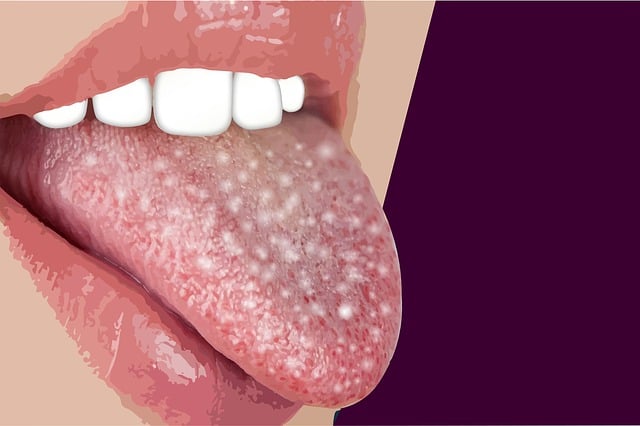Have you ever looked in the mirror and noticed a white or discolored coating on your tongue? A coated tongue can be caused by various factors, and the good news is that it’s often treatable or manageable with some simple steps.
In this blog post, we’ll explore the common causes of tongue coating and how to get rid of it.
1. Poor Oral Hygiene
One of the most common reasons for a coated tongue is poor oral hygiene. When we forget to clean our tongues, food particles, bacteria, and dead cells can accumulate, leading to that fuzzy feeling and white coating.
To improve your oral hygiene, make sure you’re brushing your tongue gently with your toothbrush or using a tongue scraper. This simple step can help remove the debris and bacteria causing the coating.
2. Dehydration
If you’re not drinking enough water, your mouth can become dry, contributing to a coated tongue. Saliva helps keep your mouth clean by washing away bacteria and particles.
Stay hydrated by drinking plenty of water throughout the day. This can help maintain proper saliva production and reduce tongue coating.
3. Smoking and Tobacco Use
Smoking and using tobacco products can not only stain your teeth but also contribute to a coated tongue.
Quit smoking or using tobacco products to improve your overall oral health and reduce tongue coating.
4. Dry Mouth (Xerostomia)
Reduced saliva production, often due to various factors, can lead to a dry mouth and tongue coating.
Stay hydrated, use sugar-free gum or lozenges to stimulate saliva production, and consult a healthcare provider if dry mouth persists for further evaluation and management.
5. Medications
Certain medications can sometimes lead to tongue coating as a side effect.
If you suspect that your medication is causing the issue, discuss your concerns with your healthcare provider. They may be able to adjust your medications or recommend alternatives.
6. Oral Thrush (Candidiasis)
Oral thrush is a fungal infection caused by Candida yeast overgrowth in the mouth, leading to a white coating on the tongue.
Treatment typically involves antifungal medications prescribed by a healthcare provider.
7. Bacterial Infections
Bacterial overgrowth in the mouth can also contribute to tongue coating.
If you suspect a bacterial infection, consult a healthcare provider. They may prescribe antibiotics or recommend antimicrobial mouth rinses.
8. Gastrointestinal Issues
Digestive problems or acid reflux can sometimes lead to a coated tongue.
Address the underlying gastrointestinal issue with guidance from a healthcare provider.
9. Dietary Habits
Certain foods, particularly dairy products, can temporarily coat the tongue.
Maintain a balanced diet, and practice good oral hygiene to minimize tongue coating from food residue.
10. Allergies
Allergic reactions can sometimes cause a coated tongue.
Identify and avoid allergens, and consult an allergist if necessary for further management.
If you have a persistent coating on your tongue that doesn’t improve with improved oral hygiene and dietary changes, or if you experience additional symptoms like pain, discomfort, or changes in taste, it’s crucial to consult a healthcare provider or dentist for a proper evaluation.
Remember, a healthy tongue is a vital part of your overall oral health, so don’t hesitate to seek professional advice if you have concerns. Enjoy the taste clearly!

